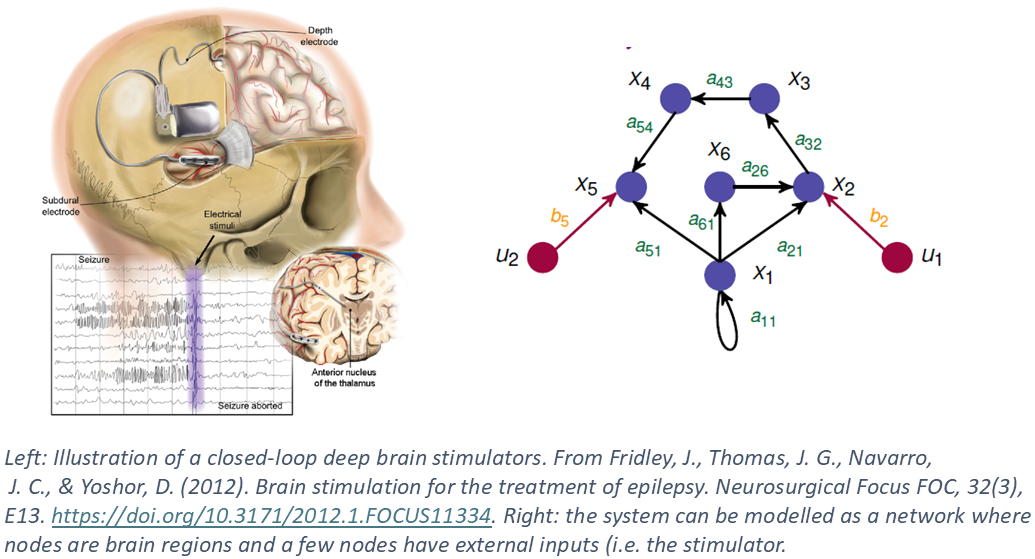MSc thesis project proposal
Sparse Control to Optimize Brain Stimulation for Epilepsy
Epilepsy is a chronic neurological disorder characterized by recurrent seizures - sudden, uncontrolled bursts of electrical activity in the brain that disrupt normal function. These seizures can range from brief lapses in awareness to convulsions and loss of consciousness, varying widely in severity, frequency, and triggers. While anti-seizure medications help many individuals manage their condition, a significant subset of patients do not respond adequately to drug therapy. For these individuals, neurostimulation may provide an alternative treatment. Brain stimulation involves the surgical implantation of a device that can deliver targeted electrical stimulation to regions within seizure-related brain brian networks. Once implanted, the device is programmed to modify brain activity via electrical stimulation.
Assignment
A major challenge in brain stimulation therapy is determining the optimal timing and location for applying stimulation. Current stimulation paradigms are primarily empirical, lacking a strong theoretical foundation. This project aims to develop model-based, theoretically grounded control strategies for seizure suppression, considering the structure of the underlying brain networks. By integrating experimental data with mathematical modeling, you will employ a control-theoretic approach to stabilize seizure dynamics. The ultimate goal is to achieve effective seizure control (in simulations) with minimal intervention by leveraging sparse control. To achieve this, you will investigate optimal control strategies that apply stimulation at the fewest necessary time points and to the smallest possible number of brain regions, maximizing efficiency while minimizing side effects. The project will be jointly supervised by Bori Hunyadi (b.hunyadi@tudelft.nl) and Geethu Joseph (g.joseph@tudelft.nl).
Requirements
We are looking for a student from electrical engineering, control engineering or biomedical engineering with a strong mathematical background, e.g. with a BSc background either in electrical or mechanical engineering. Good linear algebra skills are required.
Contact
dr. Geethu Joseph
Signal Processing Systems Group
Department of Microelectronics
Last modified: 2025-02-11
